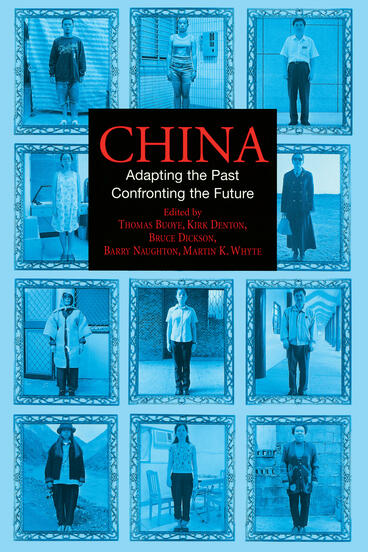China
Adapting the Past, Confronting the Future
A comprehensive textbook on contemporary China combining original essays by leading experts with excerpts from primary sources, the latest scholarship, Chinese literature, and Western media reports
Description
Completely updated, China: Adapting the Past, Confronting the Future is the latest in a series of classroom units on China from the Center of Chinese Studies at The University of Michigan. It is not only ideal for courses on contemporary China but also an excellent supplement for courses in area studies, international affairs and economics, and women's studies.Each section, in addition to essay and excerpts, also includes a bibliography of additional topical works as well as suggestions for complementary video and internet teaching resources.Geography and History: Presents a broad sketch of Chinese history from earliest times and a detailed discussion of the forces that have shaped modern Chinese history. Geography sharpens the focus to China’s rich ecological and ethnic diversity. Politics: Addresses political issues in post-Tiananmen China, including corruption, human rights, US-China relations, democratic reform, and religious and political dissidents. Society: Examines contemporary social problems that have emerged in the post-Mao era, including divorce, migrant labor, family planning, problems facing Chinese women, and the proliferation of Chinese and Western religions.Economy: Assesses the post-Mao economy after twenty years of experimentation and reform, including development of private enterprises, income disparities, case studies in rural and urban economic development, and the prospects for future growth. Culture: Reviews 20th century Chinese literature, the intersection between politics and the arts, the explosion of popular culture, and changing visual culture in modern China. Future Trends: Explores the prospects for democratization, generational change in leadership, the direction of modernization, and China’s prospects for political liberalization.
Geography and History: Thomas Buoye, University of Tulsa. Politics: Bruce Dickson, George Washington University. Society: Martin Whyte, Harvard University. Economy: Barry Naughton, University of California, San Diego.

